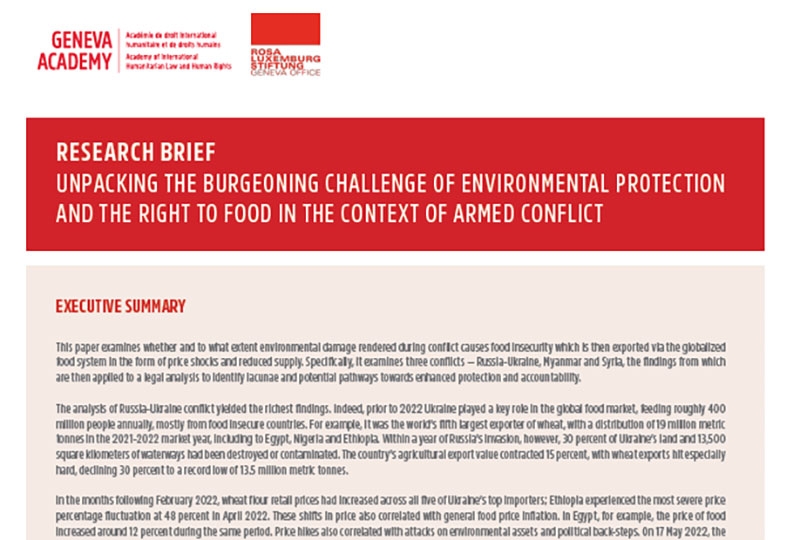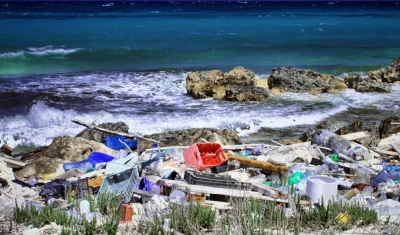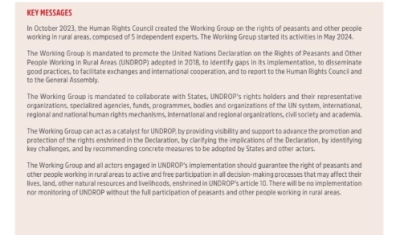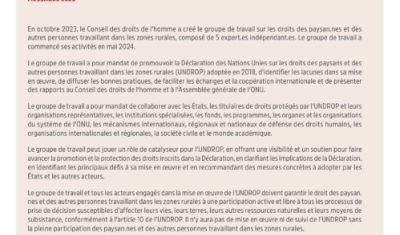18 April 2024
Our latest research brief, ‘Unpacking the Burgeoning Challenge of Environmental Protection and the Right to Food in the Context of Armed Conflict’, examines the myriad consequences that accompany damage rendered upon food systems during armed conflict. Authored by Dr Erica Harper, our Head of Research and Policy Studies, and International Legal Consultant Junli Lim, it inspects whether and to what extent food insecurity, caused by conflict, can be exported via the globalized food system in the form of price shocks and reduced supply.
Dr Harper explained, ‘The findings make clear that in today’s globalized and integrated economy, conflict cannot be seen as involving only the belligerent parties. The relationship between conflict, environmental destruction and food production must be understood, not only in a short term and existential sense, but also as an early warning signal that food insecurity, hunger and malnutrition could worsen in countries geographically and politically removed from the battlefield’
Dr Harper went on to underscore that the findings should be interpreted with caution. ‘Further testing is needed to understand whether correlation also means causation. In other words, while it is clear that the conflicts examined resulted in environmental asset losses that co-existed with price hikes and heightened food insecurity in importing countries, we must eliminate the possibility that other factors were in play.’







